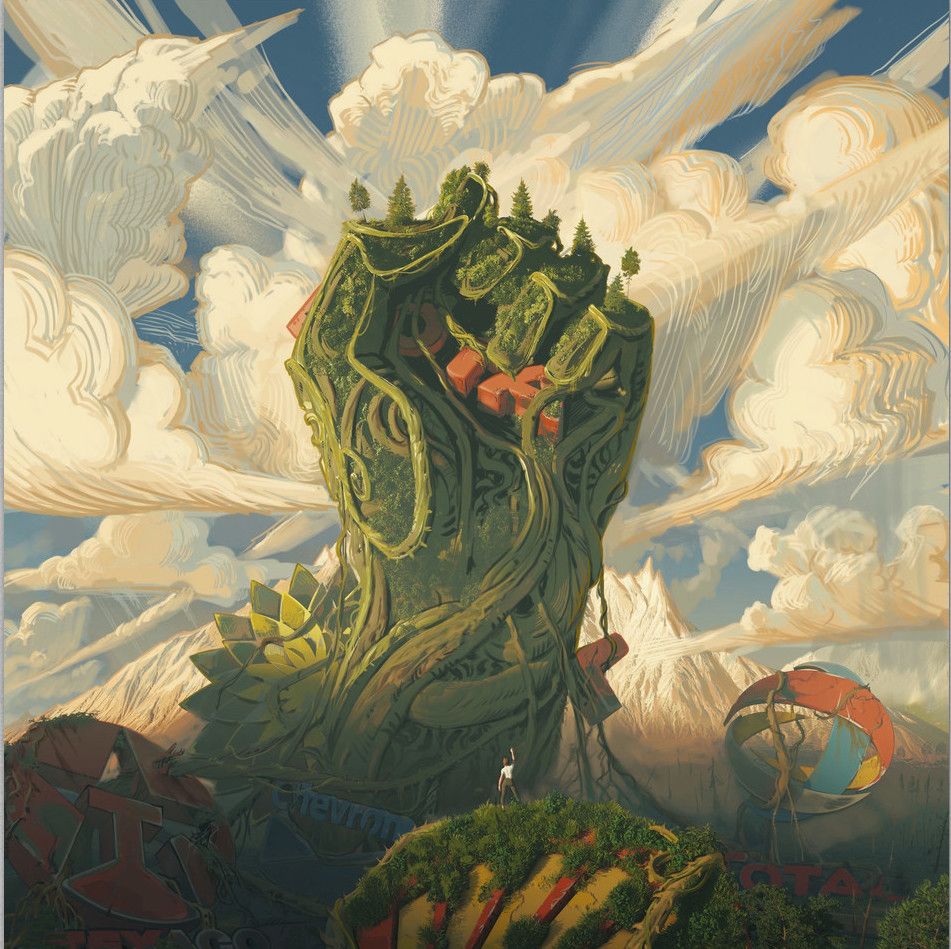Personal Essay: I Am a Mad Scientist

By Dr. Kate Marvel
I’ve heard it a couple times already, from a journalist, a family friend, a neighbor: You must be happy about all of this. The implication is that because I’m a climate scientist, I must be excited about this time of reduced economic activity and greenhouse emissions. The Earth is healing, they say. Nature is returning. Why wouldn’t I be glad about it? Friends, I’m definitely not happy. I’m not even sad. What I am, more than anything, is angry.
I’m angry at the very idea that there might be a silver lining in all this. There is not. Carbon dioxide is so long-lived in the atmosphere that a small decrease in emissions will not register against the overwhelming increase since the start of the Industrial Revolution. All this suffering will not make the planet any cooler. If the air quality is better now, if fewer people die from breathing in pollution, this is not a welcome development so much as an indictment of the way things were before.
I’m angry at the politicians for creating that status quo. I’m angry they ignored the scientists and put their own careers or pocketbooks ahead of the survival of their citizens. It’s infuriating to see the willful, cynical ignorance: bashing models (as if there existed any science not built on models, simple or complex) and weaponizing uncertainty. An epidemiological model, like a model of the climate system, is a way to explore different futures and the impacts of different choices. It’s a tool, not a crystal ball. But at the core of all useful models lies something true: the inescapable facts that mass and energy are conserved, that a greenhouse gas traps heat, that a virus can turn a host cell into a factory for self-replication. Misinformation, rumors, and hatred may go viral, but nothing is better at spreading than a virus itself. Politicians are powerful, but science is real.
I’m angry at the scientists, too, or at least at the institutions that employ them. I’m angry at a culture of precarity and fear that makes scientists timid, compliant, and reluctant to speak truth to power. I’m angry that speaking truth to anyone, powerful or not, is discouraged unless it results in a publication, grant, or other resume-boosting reward. How can scientists be listened to if we’re too frightened to raise our voices?
But more than anything else, I’m angry at the implication that “we” are at fault. There is a bad but persistent narrative that climate change and pandemics are caused not by greenhouse gases and viruses, but by human nature. We are greedy for food, shelter, adventure, self-fulfillment, human contact and— says this narrative—we must be punished for our sins. But the current situation- death, poverty, loneliness- is an ineffective blueprint for climate solutions. We were never going to be able to sacrifice our way out of climate change, especially not on the backs of the people who have historically done most of the sacrificing. There is an entrenched system that extracts CO2 from the ground and pumps it into the atmosphere, one that results not from inherent human badness but from the choices of a few humans with power. Confronting that system will take work. We need to build things: wind turbines, solar panels, public transportation, denser cities, fairer societies. We don’t need purification. We don’t need absolution. We need to get to work.
I’ve been scared to let myself feel anger because I’m a scientist. We’re supposed to be objective, to prevent emotions from clouding our judgement. But it strikes me as unscientific to pretend a thing that clearly exists does not, and I’m unsure that lying about our feelings will somehow make us more honest. I’ve read too much British literature to believe that repressing emotions will lead to a healthy outcome for anyone.
I’ve also been reluctant to be publicly angry because of who I am. I want to be liked and accepted. I’ve learned to make myself small and agreeable, to use “I feel” rather than “I know” even when discussing the solutions to mathematical equations. I know the lexicon for angry women: bitter, difficult, bitch. But there’s a difference between the small and insular resentment that festers in the dark and the kind of illuminating fury that lights the way out of the tunnel.
That’s the fury I feel. It’s that incandescent rage, shining like a beacon through dark times, lighting the way to something better.
Kate Marvel is a climate scientist at the NASA Goddard Institute for Space Studies and Columbia University.
